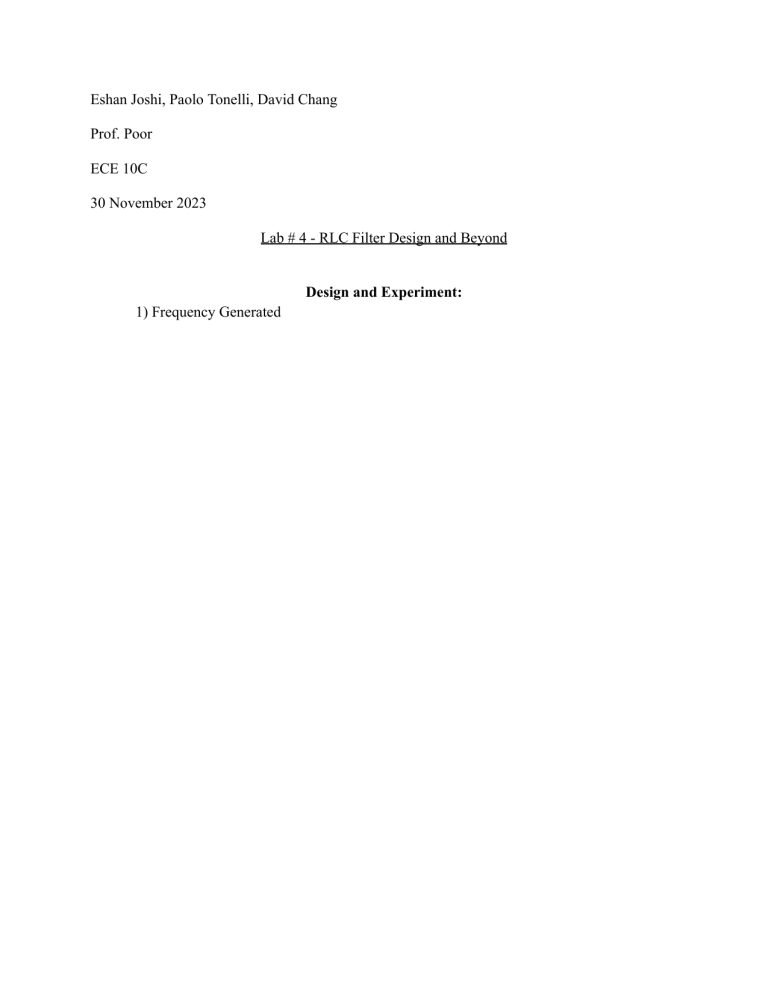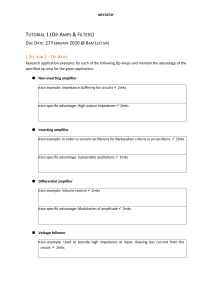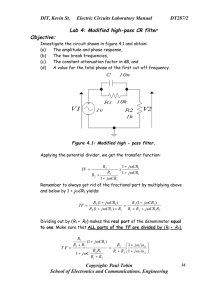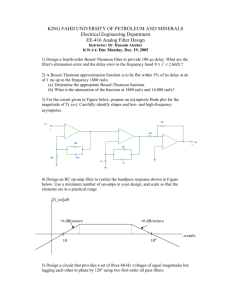
Eshan Joshi, Paolo Tonelli, David Chang Prof. Poor ECE 10C 30 November 2023 Lab # 4 - RLC Filter Design and Beyond Design and Experiment: 1) Frequency Generated By using the equations defined above we found that 14.2k ohms and a capacitance of 98.9pF. Step 3: a. Yes, we observed slight attenuation because the devices used (oscilloscope, power supply) possess their own resistance which causes the filter to attenuate some frequencies even though it wasn’t designed that way. b. Yes, this signal also experiences slight attenuation for the same reason as the previous situation, however, it is much more noticeable this time around because the amplitude has been doubled c. The bandwidth is 64 kHz between 123 and 187 kHz. The achieved Q is about 5. d. With our components (1-ohm resistor), the highest quality factor that we can achieve is Q = 10,000, however, this is an unrealistic value for the resistance because the resulting Q value would produce voltages higher than the rest of the system could handle. e. After adjusting the resistance values to ½ R (1st image below) and ⅕ R (2nd image below) , we notice that the Q value stays fairly constant at approximately Q = 5. f. After applying our highest Q-value to our system, we created a band-pass filter because now our system provides a gain of 1 or more at a very specific frequency.


